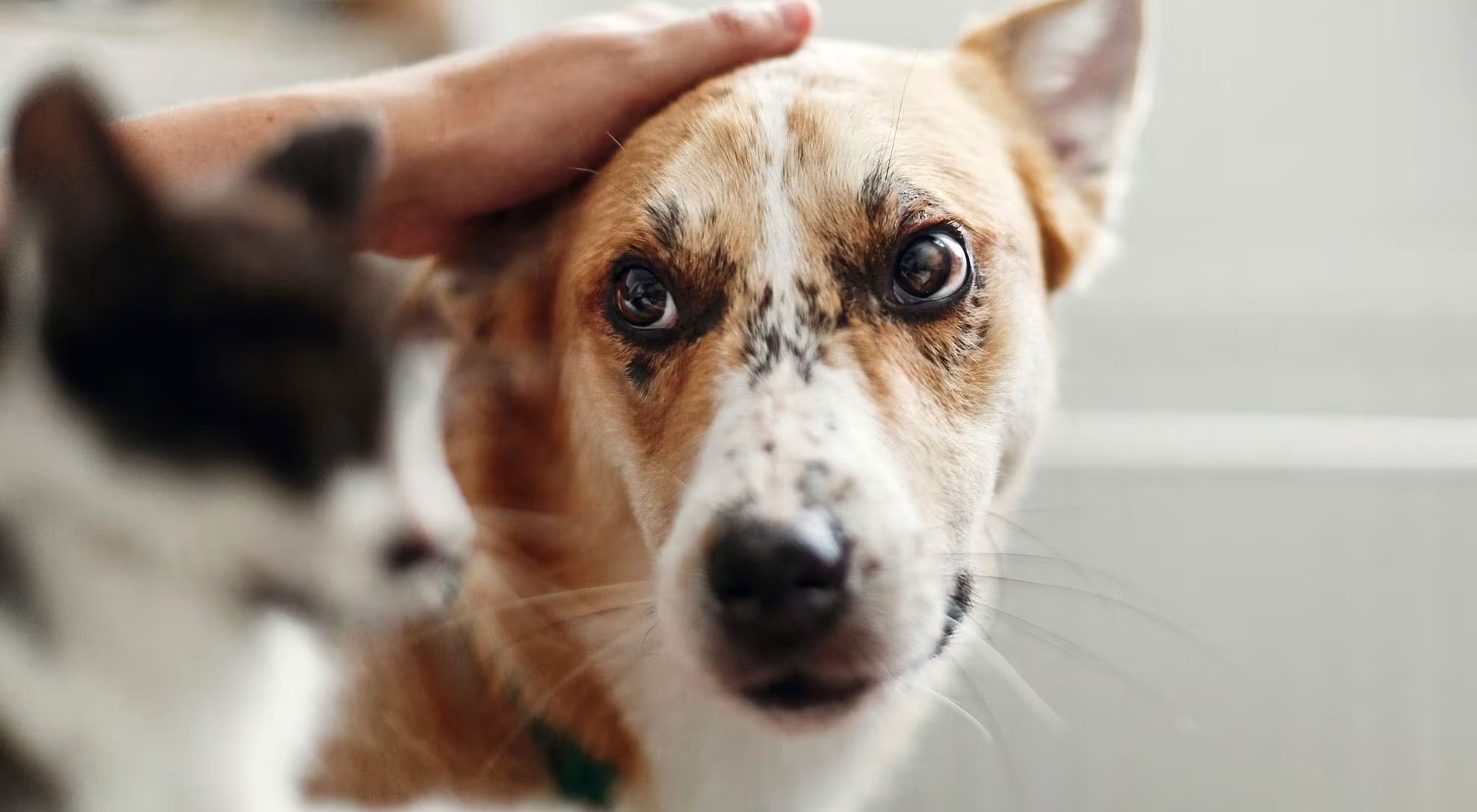Every living thing requires specific nutrients to survive, and it's important that pet parents learn about their furry friends and what they need to live a healthy life. If you're concerned about a health issue with your pet, having a conversation with your vet should always be the first step before administering any type of dietary supplement.
As humans, we've evolved to be able to survive as vegans or pescatarians or flexitarians but our pets can't do the same. Fortunately, pet food is formulated to generally meet the nutritional requirements they need (don't forget that brushing your dog's teeth is also important for overall health).
Sometimes, pets need supplements in addition to their regular diet to increase their overall wellness and quality of life.
To understand when and why supplements are needed we're sharing vet-approved advice in this article.
When to look into supplements
Veterinarian Dr. Garrett Schuilenberg says that healthy pets without any diagnosed medical issues are less likely to require supplements.
“I think that multivitamins and things like that aren't necessary. If your pet is on a complete and balanced diet, you don't need to be giving them a multivitamin,” he explains.
However, there are situations where supplements can help.
“For cats with kidney disease,” says Dr. Schuilenberg, “sometimes we'll give them a supplement that restricts their phosphorus levels in their body or something like that. Another exception is for arthritis — omega-3s and glucosamine and things like that are generally safe and well tolerated and can really be given to most pets.”
“Omega-3s are kind of good for everything,” he adds. “They're a general anti-inflammatory. So they help with brain health, they help with cardiac function, they're good for arthritis, and they help increase the strength of the skin barrier which can help with a lot of skin diseases. There's a lot of cases where you would use omega-3s.”
Animals that are eating raw food may also require certain additions to their diet, whereas high-quality cat and dog kibble are generally nutritionally complete and do not require supplementation.
When in doubt, consult with your vet who will ensure food options contain everything your pet needs. And for pet parents who opt for raw diets, Dr. Schuilenberg says your vet will likely recommend a vitamin supplement be added to mealtime.
Products for mental health and anxiety
For pets with ongoing anxiety and stress issues, vet-prescribed medication may be the answer for a long-term mental health solution.
However, many animals experience stress and anxiety in very specific situations and don't need an everyday medication to deal with it. Think: car rides, fireworks displays, or thunderstorms. In those instances, a natural remedy or supplement might provide enough relief to get them through the stressful experience.
“There are natural products and things like that that you can get off the shelf or you can get from your vet,” says Dr. Schuilenberg, pointing to pheromone collars or sprays which mimic the calming scent of an animal's mother, calming milk protein-based dietary supplements, and even thunder shirts which, when worn, produce a feeling of light pressure that makes your pet feel like they are being securely held.
For situations where those natural solutions simply aren't enough, Dr. Schuilenberg recommends vet-prescribed medications that don't necessarily need to be taken continuously.
“One is Trazodone which is a medication that is a human medication too, but we give it to dogs for these sorts of issues. Gabapentin is another one that we can give to cats often as well as dogs. They're medications where your pet won't need to be tapered off of them like with longer-term ones. You just get one or two doses and it's in and out of their system in 12 hours.”
“To me, wellness is food,” he explains. “It's regular checkups and regular diagnostic screenings. It's making sure pets are provided with enrichment: toys, going on walks, brushing them, clipping their nails, general maintenance, and making sure that they're living a happy, well cared for life.”













































